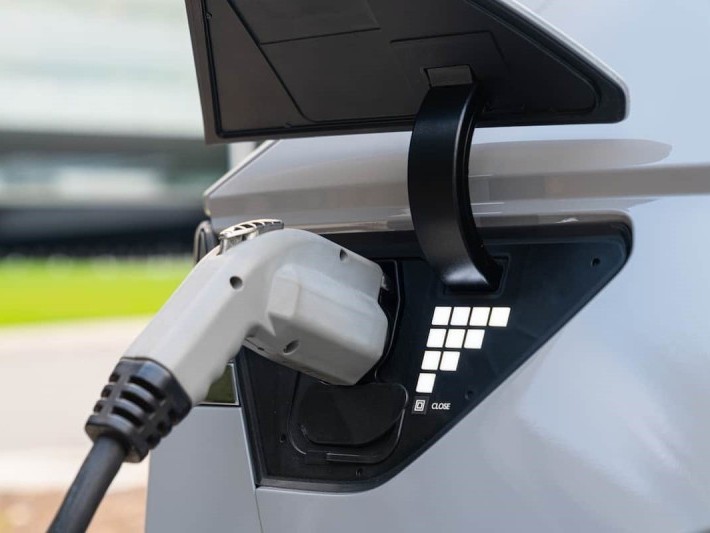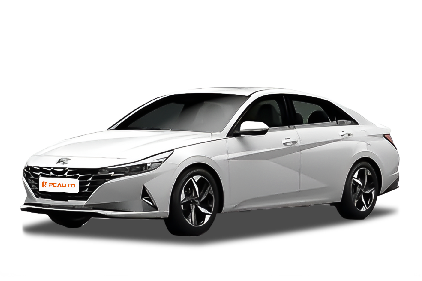Q
What is the engine problem with the 2018 Hyundai?
In 2018, some Hyundai models were recalled due to engine issues, primarily involving the 2.4L and 2.0T turbocharged engines in the Theta II series. A piston ring design flaw could lead to abnormal oil consumption or engine stalling, problems that are more likely to occur during prolonged highway driving or aggressive acceleration. Hyundai offered free inspections and engine replacement services for affected vehicles. Owners were advised to regularly check oil levels and promptly update engine software. As the heart of a car, the engine requires special maintenance attention. Avoid prolonged low-rev, high-load operation during daily driving and use the manufacturer-recommended oil viscosity—these steps effectively extend engine life. If you notice unusual vibrations, decreased power, or the oil warning light illuminating, immediately contact an authorized service center for professional diagnosis. Addressing issues early prevents more significant damage. Regular maintenance records are crucial for warranty claims related to such potential problems, so keep all service receipts.
Special Disclaimer: This content is published by users and does not represent the views or position of PCauto.
Related Q&A
Q
What is the paint issue on the 2018 Hyundai Elantra?
The 2018 Hyundai Elantra gained attention due to paint adhesion issues in certain production batches. The main symptoms include paint bubbling, peeling, or premature oxidation after prolonged use in humid climates, particularly around metal seams on the hood and roof. This is typically linked to electrophoretic coating processes or primer application environment control, and isn't a widespread issue across all models. Affected vehicles can receive free inspection and touch-up services through dealerships. For owners in tropical climates, regular waxing or ceramic coating is recommended to enhance paint corrosion resistance, while avoiding long-term parking in high-salt coastal areas. Hyundai has since improved painting processes in updated models, implementing higher-standard double-layer primers and UV-resistant clear coat technology. If similar issues occur, owners can visit authorized service centers with purchase documentation for evaluation—the factory's 5-year body rust warranty generally covers such cases. During regular maintenance, promptly remove acidic substances like tree sap and bird droppings as they accelerate paint aging; using pH-neutral car wash soap regularly also effectively extends paint life.
Q
How many miles should a 2018 Hyundai Elantra last?
The 2018 Hyundai Elantra can typically hit 200,000 to 250,000 kilometers (that's roughly 120,000 to 150,000 miles) with regular maintenance and normal use. Of course, how long it actually lasts depends on your driving habits, how often you service it, and the environment. Staying on top of oil changes, transmission fluid, brake fluid—all those key fluids—and checking tires, brakes, and engine condition regularly can really stretch its lifespan. The Elantra's known as a solid, budget-friendly sedan, especially the 1.6L and 2.0L naturally aspirated engine models; their tech is tried-and-true, and they hold up well over time. Something to note: Malaysia's tropical climate can take an extra toll on batteries and rubber parts like belts and hoses, so it's a good idea to check or replace those wear items every 2 to 3 years. Also, avoiding frequent short trips and long idling helps cut down on engine carbon buildup. If you mostly drive it around the city, mixing in some highway runs can help clear out the exhaust system's gunk. Hyundai's warranty usually covers 5 years or 150,000 kilometers, which says a lot about how confident the manufacturer is in its durability.
Q
How much is maintenance on a 2018 Hyundai Elantra?
The regular maintenance costs for the 2018 Hyundai Elantra are relatively budget-friendly. A minor service (oil and filter change) typically ranges from 200 to 300 Malaysian Ringgit, while a major service (including air filter, cabin air filter, brake fluid replacement, etc.) usually costs around 500 to 800 Malaysian Ringgit. The exact price depends on the type of engine oil used and the service center's pricing. It's recommended to perform regular maintenance every 6 months or 10,000 kilometers to maintain vehicle performance and extend its lifespan. Beyond basic maintenance, additional items like tire rotations and brake system inspections can affect the total cost, but these are crucial for ensuring driving safety. It's worth noting that Hyundai vehicles have sufficient parts supply at reasonable prices, which helps reduce long-term maintenance costs. Opting for original factory maintenance gives you access to professional technician services and genuine parts guarantee. Although the price is slightly higher than third-party repair shops, the quality and reliability are more assured. Understanding the vehicle's maintenance schedule and following the manufacturer's recommendations can effectively avoid high repair costs due to neglected maintenance and also help maintain better resale value for the used car.
Q
What are the brake issues with the 2018 Hyundai Elantra?
Brake issues with the 2018 Hyundai Elantra mainly center around abnormal noises and a soft brake pedal feel. Some owners have reported a sharp metallic grinding sound during low-speed braking, which is usually related to brake pad material or slight oxidation on the brake disc surface. This can often be improved by cleaning the brake components or replacing with higher-quality brake pads. Additionally, a few cases mention a longer brake pedal travel or soft initial braking force. It's recommended to regularly check the brake fluid moisture content (replace if over 3%) and inspect for any air trapped in the braking system. For brake system maintenance, regularly checking brake pad thickness (replace when below 3mm) and brake disc flatness is crucial. If you notice unusual vibration, the discs may need resurfacing or replacement. Hyundai's braking systems generally show good reliability, but humid climates can accelerate brake disc rusting. After washing the car, it's advisable to gently apply the brakes over a short distance to remove the water film. If you experience significantly increased braking distance or abnormal ABS activation, you should immediately visit an authorized service center for diagnosis, as such issues may involve sensor or hydraulic system faults. Avoiding sudden braking in daily driving can effectively extend the lifespan of the brake system, and using the factory-specified brake fluid ensures optimal performance.
Q
What are the pros and cons of the 2018 Hyundai Elantra?
The 2018 Hyundai Elantra, a practical and budget-friendly compact sedan, has its strengths. It boasts a stylish exterior design, especially the Fluidic Sculpture 2.0 front fascia and sleek body lines that appeal to younger buyers. The interior layout is clean and comes standard with a 7-inch touchscreen supporting Apple CarPlay and Android Auto, offering decent tech features for its class. The 1.6L and 2.0L naturally aspirated engines paired with a 6-speed automatic transmission deliver smooth power and good fuel economy, ideal for city commuting. Safety-wise, it comes standard with 6 airbags, stability control, and a rearview camera, while higher trims add active safety features like blind-spot monitoring.
On the downside, rear legroom feels a bit tight, making long rides just okay for backseat passengers. The sound insulation is so-so at medium to high speeds, and the suspension tuning is on the firm side, resulting in noticeable bumps over speed humps. Also, its used car resale value is somewhat lower compared to German or Japanese rivals.
In the local market, the Elantra's main competitors are the Toyota Corolla and Honda Civic. While it can't match their brand cachet, it offers better value for money, especially for buyers on a budget who still want nice features. It's worth noting that maintenance costs are reasonable, and Hyundai's 5-year unlimited-mileage warranty helps ease long-term ownership worries.
Q
How safe is the 2018 Hyundai Elantra?
The 2018 Hyundai Elantra delivers solid all-around safety performance, earning a "Top Safety Pick" rating from the Insurance Institute for Highway Safety (IIHS). Its standard safety kit includes six airbags, Electronic Stability Control (ESC), Anti-lock Braking System (ABS), and a rearview camera. Higher trim levels might add advanced driver assistance systems like blind-spot monitoring, lane-keeping assist, and automatic emergency braking, which take active safety up a notch. The body structure uses high-strength steel, demonstrating good occupant protection in crash tests. For everyday driving, this car's safety features are more than enough for most situations, especially city commuting and highway trips. It's worth noting that the actual safety condition of a used Elantra depends on how well the previous owner maintained it, so a thorough inspection before buying is a smart move. With automotive technology advancing, many new cars now come with even more active safety gear these days—features like adaptive cruise control and pedestrian detection are becoming standard—but the 2018 Elantra's core safety performance still meets the needs of average families, making it a solid value pick.
Q
How much to replace an engine in a 2018 Hyundai Elantra?
The cost of replacing the engine in a 2018 Hyundai Elantra varies depending on the type of engine (brand-new OEM, remanufactured, or used salvage) and the repair shop's pricing. Typically, a brand-new OEM engine might range from RM15,000 to RM30,000, while a remanufactured or used unit could be as low as RM8,000 to RM15,000. But you'll also need to factor in labor costs (around RM2,000 to RM4,000) and expenses for any necessary surrounding components like gaskets and fluids. It's a good idea to get detailed quotes from authorized service centers first, then compare options from reputable independent shops. Look for options with warranty coverage to reduce risks. Also, if your car is still under the original factory warranty and the issue qualifies, you might be able to get the repair done for free. Beyond that, engine replacement is a major repair—you should consider if the vehicle's residual value makes the investment worthwhile. Sometimes selling the old car and trading up to a new one is more economical, especially if the transmission or other key components are also showing signs of aging. Sticking to regular oil changes and keeping an eye on the cooling system during routine maintenance can really help extend engine life and avoid those sudden, costly breakdowns.
Q
Is a 2018 Hyundai Elantra a reliable vehicle?
The 2018 Hyundai Elantra delivers decent reliability overall, making it a solid contender in its class. Its powertrain has stood the test of time – the 1.6L and 2.0L naturally aspirated engines are technically mature with low failure rates, paired with a smooth-shifting 6-speed automatic transmission. Maintenance costs are reasonably affordable too; stick to regular servicing, and you’re unlikely to run into major issues during daily use.
That said, some owners note that the cabin insulation is just average – wind and road noise become noticeable at highway speeds. The suspension is tuned on the firmer side, which takes a bit of a toll on comfort when going over speed bumps, though these are pretty common traits in this segment.
For long-term ownership, the Elantra’s electronics hold up well, and the AC system blows ice-cold – a big plus for tropical climates. While the interior relies heavily on hard plastics, the build quality is solid, so squeaks and rattles are rare. If you’re eyeing a used model, prioritize checking the transmission fluid change records and the condition of chassis rubber components – these directly impact future maintenance costs.
Fuel economy lands in the middle of the pack for its class: expect around 7-8 liters per 100km in city driving, dropping to roughly 6 liters on the highway. Sticking with genuine parts for regular maintenance will help keep the car in better shape down the line.
Q
What kind of engine is in the 2018 Hyundai Elantra?
The 2018 Hyundai Elantra offers a range of engine options depending on the market. The most common is the 1.6-liter Gamma GDI four-cylinder naturally aspirated engine, putting out around 128 horsepower and mated to either a 6-speed manual or 6-speed automatic transmission. This engine prioritizes fuel efficiency and smoothness, ideal for daily commuting. Some higher trim models might come with the 2.0-liter Nu MPI four-cylinder, churning out approximately 149 horsepower for more robust performance. Additionally, certain markets get a 1.4-liter turbocharged variant, which emphasizes low-end torque delivery. Hyundai's engine tech generally uses aluminum blocks to cut weight and features dual continuously variable valve timing to optimize combustion efficiency. It's worth noting that turbo engines deliver better acceleration response at low revs, while naturally aspirated ones tend to have lower maintenance costs—so buyers can pick based on their driving style. Hyundai Group has made notable strides in engine thermal efficiency and NVH control in recent years, and those technologies shine through in the Elantra's powertrain too.
Q
How much does it cost to replace a timing chain on a 2018 Hyundai Elantra?
The cost to replace the timing chain on a 2018 Hyundai Elantra typically ranges from 1,500 to 3,000 Malaysian Ringgit. The exact price depends on the type of repair shop and the parts used—genuine OEM parts plus labor will be pricier, while third-party garages might use compatible components to cut costs. It’s best to go with certified technicians to ensure precise installation.
Timing chains are more durable than belts and theoretically last the lifetime of the vehicle, but if you hear unusual noises or the check engine light comes on, have it inspected. Keeping an eye on the chain tensioner during regular maintenance can extend its lifespan. Hyundai’s chain systems are generally reliable, though aggressive driving or degraded engine oil can speed up wear. If your budget allows, replacing the water pump and other related components at the same time saves on future labor costs for disassembly and reassembly. The Elantra’s transverse engine design makes repairs relatively accessible, though chain layout varies by model and affects job difficulty.
Latest Q&A
Q
What is the paint issue on the 2018 Hyundai Elantra?
The 2018 Hyundai Elantra gained attention due to paint adhesion issues in certain production batches. The main symptoms include paint bubbling, peeling, or premature oxidation after prolonged use in humid climates, particularly around metal seams on the hood and roof. This is typically linked to electrophoretic coating processes or primer application environment control, and isn't a widespread issue across all models. Affected vehicles can receive free inspection and touch-up services through dealerships. For owners in tropical climates, regular waxing or ceramic coating is recommended to enhance paint corrosion resistance, while avoiding long-term parking in high-salt coastal areas. Hyundai has since improved painting processes in updated models, implementing higher-standard double-layer primers and UV-resistant clear coat technology. If similar issues occur, owners can visit authorized service centers with purchase documentation for evaluation—the factory's 5-year body rust warranty generally covers such cases. During regular maintenance, promptly remove acidic substances like tree sap and bird droppings as they accelerate paint aging; using pH-neutral car wash soap regularly also effectively extends paint life.
Q
How many miles should a 2018 Hyundai Elantra last?
The 2018 Hyundai Elantra can typically hit 200,000 to 250,000 kilometers (that's roughly 120,000 to 150,000 miles) with regular maintenance and normal use. Of course, how long it actually lasts depends on your driving habits, how often you service it, and the environment. Staying on top of oil changes, transmission fluid, brake fluid—all those key fluids—and checking tires, brakes, and engine condition regularly can really stretch its lifespan. The Elantra's known as a solid, budget-friendly sedan, especially the 1.6L and 2.0L naturally aspirated engine models; their tech is tried-and-true, and they hold up well over time. Something to note: Malaysia's tropical climate can take an extra toll on batteries and rubber parts like belts and hoses, so it's a good idea to check or replace those wear items every 2 to 3 years. Also, avoiding frequent short trips and long idling helps cut down on engine carbon buildup. If you mostly drive it around the city, mixing in some highway runs can help clear out the exhaust system's gunk. Hyundai's warranty usually covers 5 years or 150,000 kilometers, which says a lot about how confident the manufacturer is in its durability.
Q
How much is maintenance on a 2018 Hyundai Elantra?
The regular maintenance costs for the 2018 Hyundai Elantra are relatively budget-friendly. A minor service (oil and filter change) typically ranges from 200 to 300 Malaysian Ringgit, while a major service (including air filter, cabin air filter, brake fluid replacement, etc.) usually costs around 500 to 800 Malaysian Ringgit. The exact price depends on the type of engine oil used and the service center's pricing. It's recommended to perform regular maintenance every 6 months or 10,000 kilometers to maintain vehicle performance and extend its lifespan. Beyond basic maintenance, additional items like tire rotations and brake system inspections can affect the total cost, but these are crucial for ensuring driving safety. It's worth noting that Hyundai vehicles have sufficient parts supply at reasonable prices, which helps reduce long-term maintenance costs. Opting for original factory maintenance gives you access to professional technician services and genuine parts guarantee. Although the price is slightly higher than third-party repair shops, the quality and reliability are more assured. Understanding the vehicle's maintenance schedule and following the manufacturer's recommendations can effectively avoid high repair costs due to neglected maintenance and also help maintain better resale value for the used car.
Q
What are the brake issues with the 2018 Hyundai Elantra?
Brake issues with the 2018 Hyundai Elantra mainly center around abnormal noises and a soft brake pedal feel. Some owners have reported a sharp metallic grinding sound during low-speed braking, which is usually related to brake pad material or slight oxidation on the brake disc surface. This can often be improved by cleaning the brake components or replacing with higher-quality brake pads. Additionally, a few cases mention a longer brake pedal travel or soft initial braking force. It's recommended to regularly check the brake fluid moisture content (replace if over 3%) and inspect for any air trapped in the braking system. For brake system maintenance, regularly checking brake pad thickness (replace when below 3mm) and brake disc flatness is crucial. If you notice unusual vibration, the discs may need resurfacing or replacement. Hyundai's braking systems generally show good reliability, but humid climates can accelerate brake disc rusting. After washing the car, it's advisable to gently apply the brakes over a short distance to remove the water film. If you experience significantly increased braking distance or abnormal ABS activation, you should immediately visit an authorized service center for diagnosis, as such issues may involve sensor or hydraulic system faults. Avoiding sudden braking in daily driving can effectively extend the lifespan of the brake system, and using the factory-specified brake fluid ensures optimal performance.
Q
What are the pros and cons of the 2018 Hyundai Elantra?
The 2018 Hyundai Elantra, a practical and budget-friendly compact sedan, has its strengths. It boasts a stylish exterior design, especially the Fluidic Sculpture 2.0 front fascia and sleek body lines that appeal to younger buyers. The interior layout is clean and comes standard with a 7-inch touchscreen supporting Apple CarPlay and Android Auto, offering decent tech features for its class. The 1.6L and 2.0L naturally aspirated engines paired with a 6-speed automatic transmission deliver smooth power and good fuel economy, ideal for city commuting. Safety-wise, it comes standard with 6 airbags, stability control, and a rearview camera, while higher trims add active safety features like blind-spot monitoring.
On the downside, rear legroom feels a bit tight, making long rides just okay for backseat passengers. The sound insulation is so-so at medium to high speeds, and the suspension tuning is on the firm side, resulting in noticeable bumps over speed humps. Also, its used car resale value is somewhat lower compared to German or Japanese rivals.
In the local market, the Elantra's main competitors are the Toyota Corolla and Honda Civic. While it can't match their brand cachet, it offers better value for money, especially for buyers on a budget who still want nice features. It's worth noting that maintenance costs are reasonable, and Hyundai's 5-year unlimited-mileage warranty helps ease long-term ownership worries.
View MoreRelated News

In Malaysia, which sliding door MPVs are available?
MichaelOct 30, 2025

Modern Ioniq 5 N Lands in Malaysia: Track-Level Performance Electric Vehicle is Here, Priced Possibly Below RM 400,000?
JohnSep 10, 2025

Hyundai's Big Return to Malaysia: Top 5 Models Expected
MichaelMay 30, 2025

580,000 km & 87.7% Battery Health: Ioniq 5’s Incredible Durability
MichaelMay 6, 2025

Revolutionizing Hybrids: Hyundai’s New System vs. Toyota's Hybrid System
Kevin WongApr 22, 2025
View More













Pros
Cons